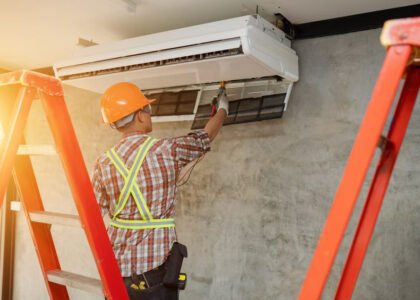Septic systems play a crucial role in managing household wastewater, especially in areas without access to municipal sewage systems. Proper maintenance is essential to keep the system working efficiently and to prevent costly repairs. Many homeowners overlook the importance of regular care until problems arise. Understanding how septic systems function and knowing the basics of maintenance can save you time and money. If you notice signs of trouble or want to avoid future issues, seeking professional Septic Tank Repair Services is a wise step. These services can identify problems early and fix them before they escalate.
How Does a Septic System Work?
A septic system is a self-contained underground wastewater treatment system. It usually consists of a septic tank and a drain field. Wastewater from your home flows into the septic tank, where solids settle at the bottom, forming sludge, and oils float to the top as scum. The middle layer, mostly clear water, then flows out to the drain field, where it is naturally filtered through the soil. If the septic tank is not maintained, solids can build up and flow into the drain field, causing blockages and system failure. This can lead to sewage backup in your home or contamination of nearby water sources. Regular inspection and maintenance help prevent these problems.
Common Signs of Septic System Problems
Identifying issues early can reduce repair costs and health risks. Some common signs of septic system problems include:
-
Slow drains or backups in sinks, toilets, or showers.
-
Bad odors around the septic tank or drain field.
-
Lush green grass or wet spots over the drain field, even during dry weather.
-
Gurgling sounds in the plumbing system.
-
Standing water near the septic tank or drain field.
If you notice any of these signs, it is important to contact professionals who specialize in Septic Tank Repair Services. They can diagnose the issue and recommend the appropriate repair or maintenance.
Routine Septic System Maintenance Tips
Maintaining your septic system regularly can extend its lifespan. Here are some essential tips:
-
Have the septic tank inspected every 3 to 5 years by a professional.
-
Pump the tank when sludge and scum reach certain levels.
-
Avoid flushing non-biodegradable items or chemicals down the drains.
-
Use water efficiently to reduce the load on the system.
-
Keep heavy vehicles and equipment off the drain field to avoid soil compaction.
Following these simple steps helps keep your septic system running smoothly and prevents costly repairs.
What to Expect from Septic Tank Repair Services
When a septic system fails, professional repair services are necessary. These experts assess the system, identify the problem, and carry out the necessary fixes. Repairs may involve pumping out the tank, fixing or replacing damaged pipes, repairing the drain field, or even installing a new septic system if required. Hiring skilled technicians ensures the repair is done safely and meets local regulations. Quick response to septic problems can prevent environmental damage and health hazards.
The Importance of Septic System Pumping Services
Regular pumping is a key part of septic system care. Over time, solids accumulate in the tank and reduce its capacity to hold and treat wastewater. If not pumped out, these solids can overflow into the drain field and cause blockages. Professional Septic System Pumping Services involve removing the sludge and scum buildup from the tank to maintain proper function. Experts recommend pumping the septic tank every 3 to 5 years, but this can vary based on household size, tank size, and water usage.
Environmental and Health Considerations
A failing septic system can contaminate groundwater and nearby water bodies, posing serious health risks. Pathogens from untreated sewage can spread diseases, while excess nutrients can harm aquatic life. Proper maintenance and timely repairs protect your family and the environment. Always use septic-safe products and avoid dumping harmful chemicals down the drain.
Conclusion
Septic systems require regular care to operate effectively and avoid costly damage. By understanding how your septic system works and following maintenance guidelines, you can ensure it serves your household reliably for years to come. If you have any concerns, don’t hesitate to reach out to septic professionals for advice and service.






